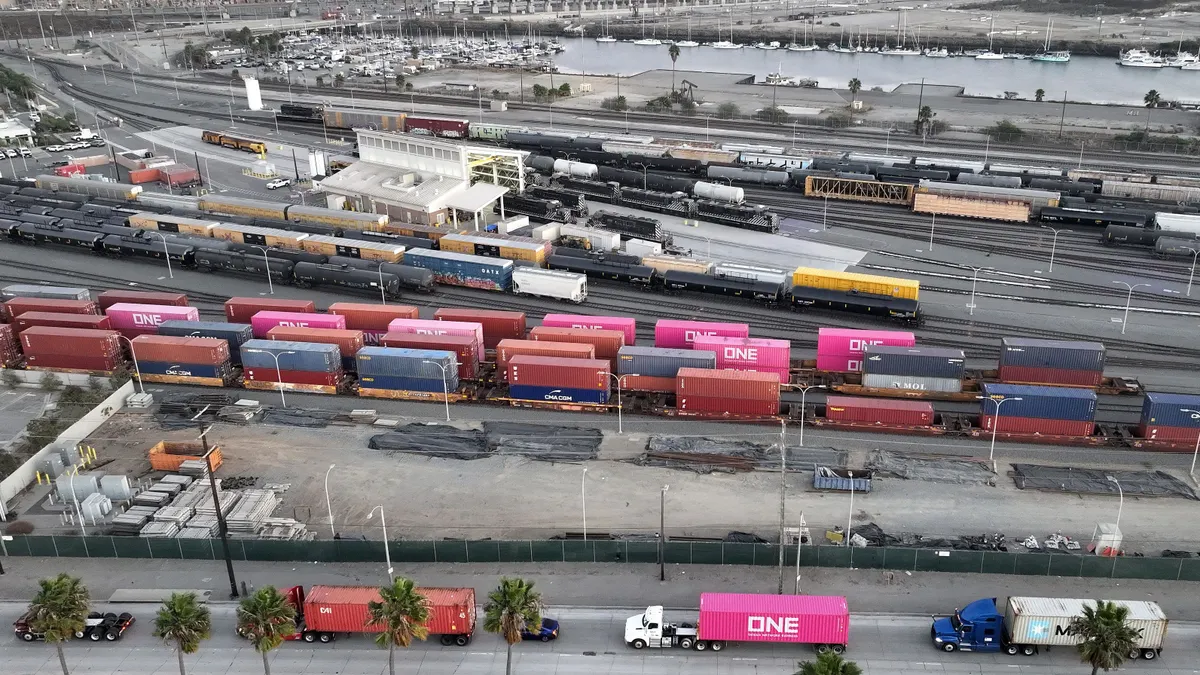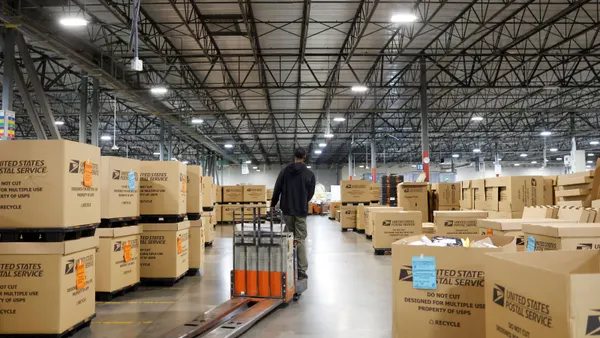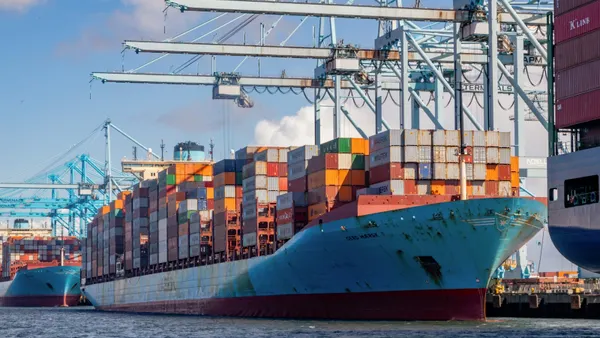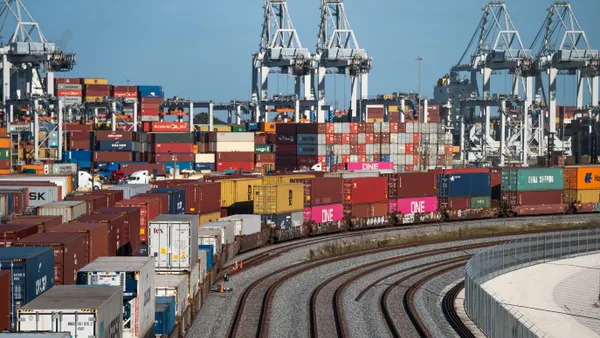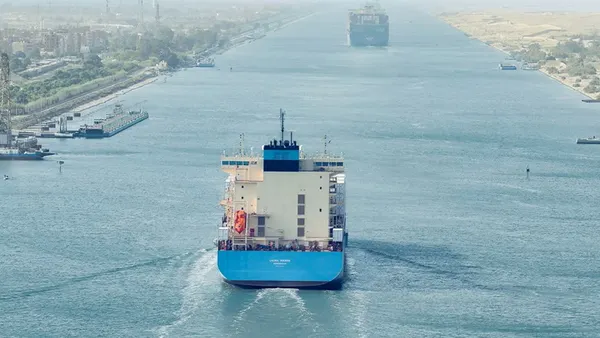Tariffs are impacting how much cargo truckers are hauling at the Port of Los Angeles, Executive Director Gene Seroka said during a press briefing on June 13.
“If you’re a trucker who was hauling four or five containers a day prior to these announcements back in April, today, you’re likely hauling two or three loads,” Seroka said.
Among the tariffs announced in Trump’s sweeping reciprocal tariff policy is the 10% universal baseline tariff, which went into effect on April 5 and subjects certain trading partners like China and Japan to higher duties than the baseline rate.
The situation at the port is fluid, according to Seroka. But he noted that May saw 17 cancelled sailings, resulting in a loss of 225,000 expected container units that were expected but didn’t show up, Seroka said. “So there’s less work on the docks,” he said.
In May, cargo volumes at the Port of Los Angeles were 5% down year over year and decreased 19% compared to April.
That's adding further strain on trucking businesses, the California Trucking Association noted.
"The San Pedro Bay Port Complex serves as the gateway for 40% of the nation's imports. Less goods coming to the ports means less truck drivers on the road," the association told Trucking Dive in an email.
This reality so far contradicts the expected summer surge in imports reported by the National Retail Federation and Hackett Associates’ Global Port Tracker, as retailers seek to take advantage of the 90-day subdued tariff levels against China.
“Retailers had paused their purchases and imports previously because of the significantly high tariffs,” NRF VP of Supply Chain and Customs Policy Jonathan Gold said in the report. And now they are looking to get cargo moving before the reciprocal tariff and additional China tariff pauses end in July and August, he said.
On the contrary, Seroka said he hasn’t observed that surge in cargo volume. He added that the port expects the season to peak in July with arrivals for the Christmas and year-end holiday season, although retailers haven’t made their strategy clear to him.
“Retailers are not telling me that they’re boosting inventory levels to have wide selections on products, beginning that Thanksgiving week and running to the end of the year. So I’m not seeing that either,” Seroka said.
While May traditionally tends to be a stronger month than April in terms of cargo volume, this past May was the lowest cargo output in over two years.
“Unless long-term, comprehensive trade agreements are reached soon, we’ll likely see higher prices and less selection during the year-end holiday season,” Seroka said in a press release. “The uncertainty created by fast-changing tariff policies has caused hardships for consumers, businesses and labor."


